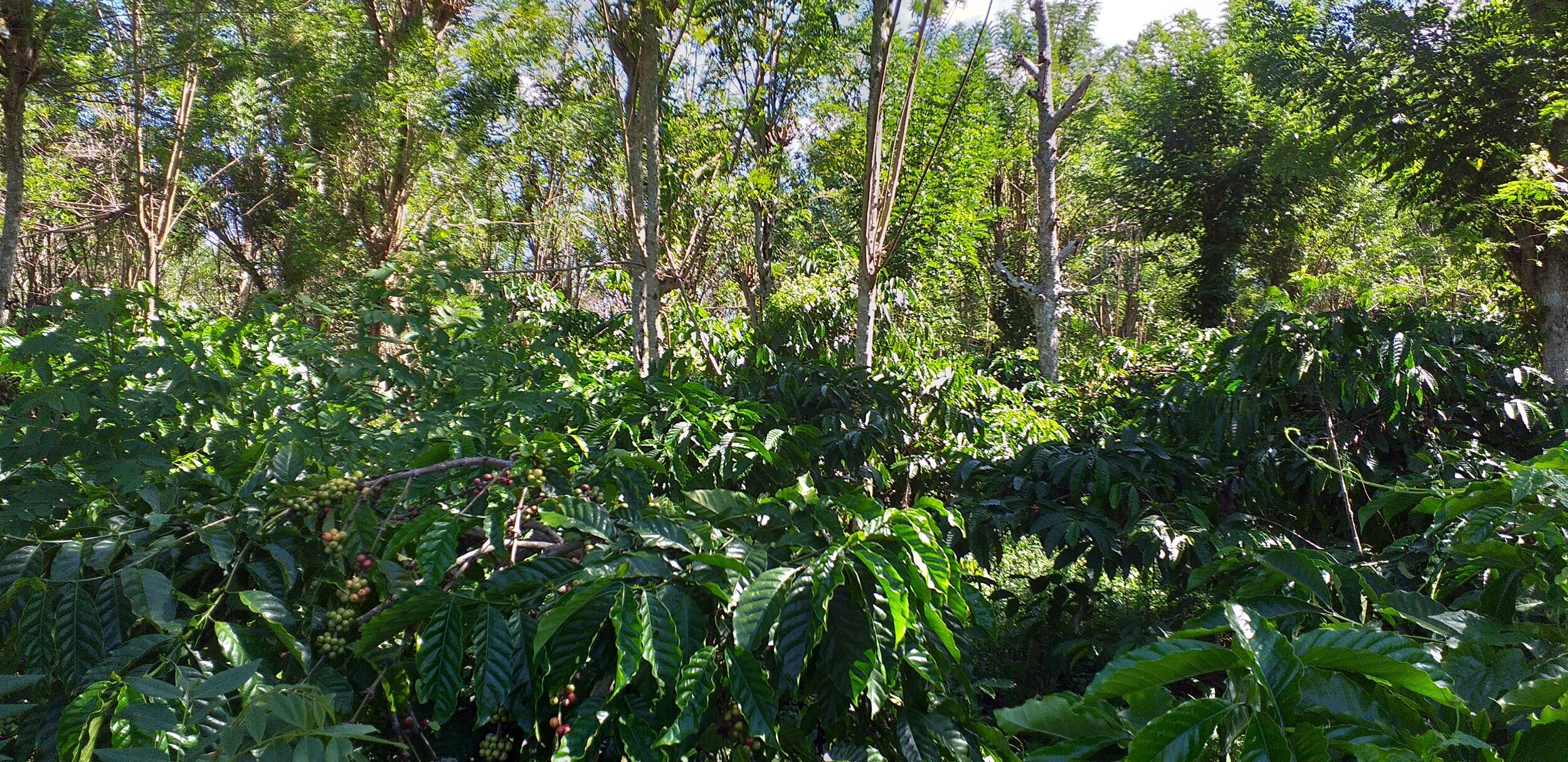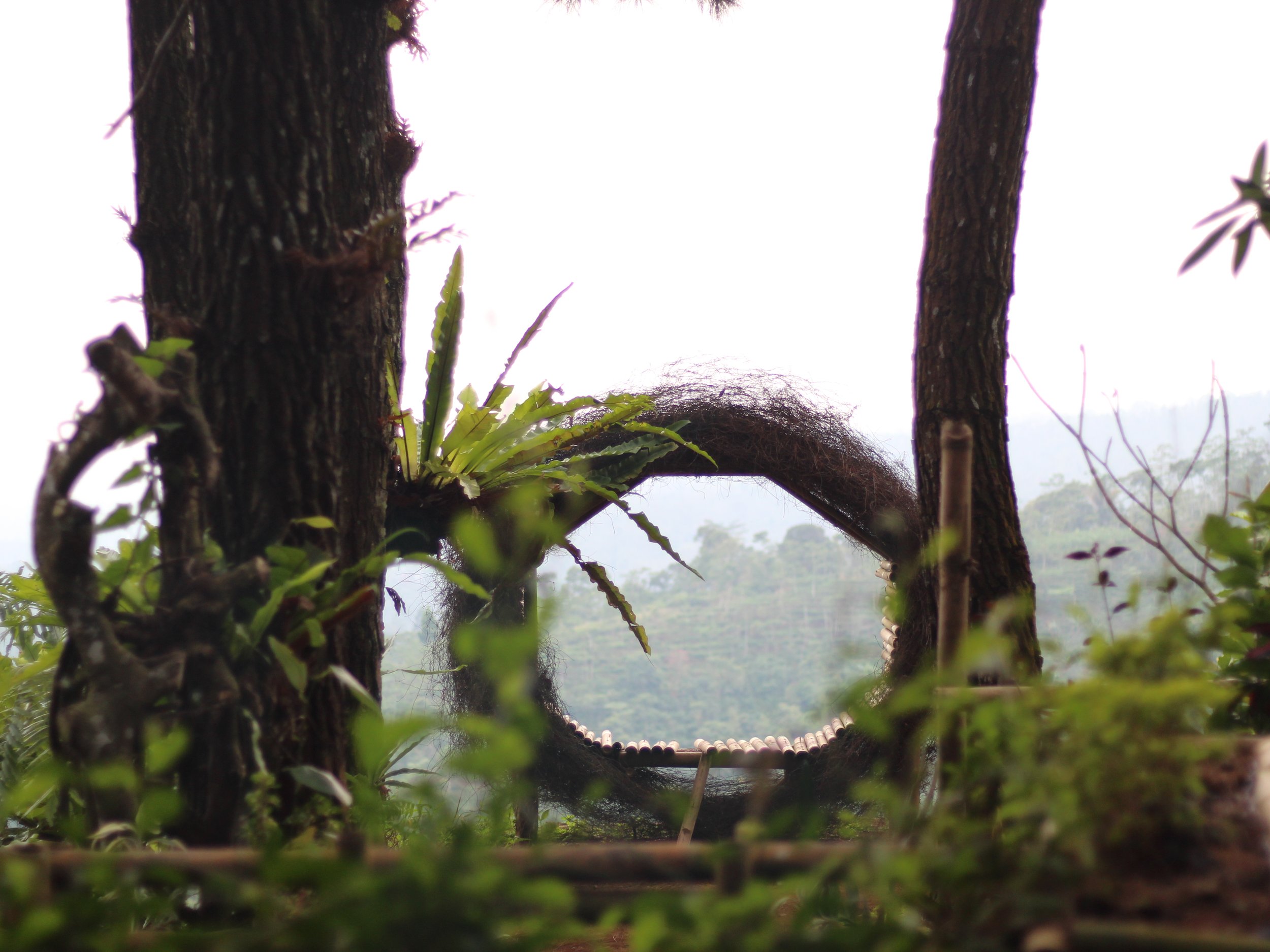Finding a “V60 proof” robusta
It was this moment of pleasant surprise that Maarten encountered in the summer of 2019. He was sitting in a pine forest, which looked like the lower Alps, but oddly, he was at a coffee plantation in Eastern Java. In between the pine trees of this magnificent forest, both arabica and robusta are grown. This was a trial project of our Indonesian export Adri Yahdiyan from Ontosoroh coffee - and it turned out to be a great gamble.
Sapto Wening, as the cooperative organisation is called, is the perfect This Side Up partner. It exists because of their mission to initiate an economic opportunity for youth aged 17-30 year old in the pine forest surrounding their village, without cutting a single tree. In this sense it is a social youth project, and agroforestry project, a specialty coffee project and a fine robusta project, all in one.
CULTIVARS :
SA-436 or as the locals call it: Kopi Java.
ALTITUDE :
750 - 1,100 meters above sea level.
NOTABLE :
Organically grown by default in natural pine forest. Great flavour complexity of dark berries, white pepper, cedar and herbs. Total production of only 1,2 tonnes in 2019/2020 harvest.
PROCESSING :
Pulped natural, honey processed fine robusta: Dried on open bamboo pole beds. All manually picked, pulped and hulled.
Key ACHIEVEMENTS :
2019: The 2020 season is the first time this coffee got exported, being This Side Up on the receiving end. Sapto Wening used the profits from the TSU sales for purchasing a micro mechanical pulper/huller for the 2020/2021 season.
2020: Sapto Wening farmers installed a solar panel electicity system that supported their entire milling process.
2021-2023: farmers continue working on becoming 100% off-grid and develop an ecological water filtration system.
TASTIFY™ CUPPING NOTES :
PHOTO GALLERY :
You may use these images freely to promote Ontosoroh among your customers. Please credit Dick Wynendaele when using these pictures.
Meeting Sapto Wening :
Adri from Ontosoroh Coffee had his first introduction to the Robusta from Batang through an acquaintance that sent samples and explained the story of how he and his friends organised a youth group that focused on agroforestry management and added value activities. The organisation was called "Sapto Wening", their main mission being to initiate an economic opportunity for their members (mainly youths aged around 17-30ish working odd jobs) in the pine forest surrounding their village without cutting a single tree. In 2016 they started to plant robustas between the pine trees in three plots (~1 ha each) and to encourage existing coffee farmers to rejuvenate as well as improving agricultural practices for their robustas.
Before, and the majority still is, robusta coffees in the area traded even lower than the R price benchmark of Rp 14.000 per kilo (many farmers would accept prices as low as Rp 10.000 per kilo), for low quality local grown robusta. The guys from Sapto Wening wanted to change this and begun processing better grade robustas from their family farms and introduced it to local cafe, roasteries, and the roasted version as well. The profits they received were re-invested in: a) opening up their own local coffee shop in the pine forest, b) opening up new coffee plots, c) improving the facility of surrounding places of interest, especially the Curug Genting waterfall. Again, all done by trying without cutting a single tree.
Ontosoroh really liked their combination of youth-centred as well as sustainable agroforestry business model and thus at first bought some small batches and then helping them with some equity to buy red cherries for them to process. And the result was the coffee that Maarten tasted when he visited in the summer of 2019.
As Adri says: “I think definitely the most important and interesting part of this project is the youth-led movement to improve the economic situation of their village through coffee and any other means. There are too many instances in the coffee world that cultivation and improvement stopped because of failed regeneration of farmers. They also have an interesting business model where they combined the forest sustainability aspect and other areas such as tourism, F&B services as a source of economic opportunity rather than a competing industry. All done collectively and independently. We really like their idea.”
Sadly, in 2020, there was no coffee available from Sapto Wening for us to purchase, so we will be in more intensive contact next year to make sure we can continue supporting this inspiring project with high prices.












































